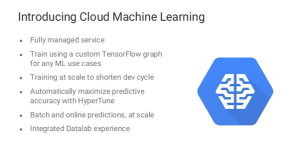
Fueled by extensive demand in IT, healthcare, financial services, and telecommunication—initially spurred by the pandemic-driven frenzy to transition to remote working—managed service providers (MSPs) are busier than ever. As businesses adopt MSP services to upgrade, innovate and secure IT infrastructure, the managed services market is predicted to expand from almost $60 billion globally in 2021 to just under $100 billion by 2026, a healthy compound annual growth rate of 10.9%.
This forecast is good news for players in the managed services industry, but with more than 40,000 U.S. companies offering cybersecurity, support, infrastructure and cloud services, MSPs must find ways to differentiate their offering from the competition while ensuring healthy profit margins to weather the current economic uncertainty.
Whether providing help desk support to small and medium-sized businesses (SMBs) or managing entire enterprise networks, data centers and cloud infrastructure for multinational corporations, profitable MSPs are hyper-focused on increasing operational efficiency and refining the customer experience—and artificial intelligence (AI) is the tool that’s helping them meet those objectives.
Leveraging AI to optimize operations
From early consumer AI incarnations like Siri and customer support chatbots to the recent explosion of generative AI tools (e.g., OpenAI’s ChatGTP-3, Microsoft Bing Chat) that use natural language processing (NLP) to ‘understand’ human language and produce human-like text, AI has transformed how we live and how we work.
On an operational level, MSPs are capitalizing on the remarkable evolution of AI and NLP to save considerable time, effort, and money across the business by streamlining and accelerating workflows. Indeed, the democratization of AI through the use of large language models (LLMs)—such as OpenAI’s GPT-3 (and the recent GPT-4 which can accept and produce text and images) and Google’s BERT and PaLM 2—has created a host of opportunities for driving efficiencies and improvements across operational processes, content creation, and customer-facing tasks.
A tool like ChatGPT can simulate human conversation, automate script creation and provide insights and remediation advice, automating routine tasks to save time and resources. By training GPT on a qualified data set, MSPs can enhance cybersecurity for clients, enable predictive maintenance, and provide fast, consistent responses to customer support enquiries; to keep revenue flowing, IT solutions providers can quickly run bid/no bid scenarios, automatically draft sales emails to prospective clients, and build assets for RFP responses, proposals and pitch decks, for example.
Driving bottom- and top-line growth
Savvy MSPs are leveraging generative AI models to improve profit margins. By automating repetitive processes across sales and marketing operations (e.g., proposal creation, new client onboarding), MSPs are able to increase efficiency and minimize costs by accelerating the sales cycle to bring more clients through the door using fewer resources. AI tools also help free up time for high-level tasks, such as strategy planning and positioning, and relationship-building activities that help fuel the sales funnel to drive growth.
At the same time, MSPs are using the wealth of AI-driven customer data to make data-based business decisions and create personalized customer experiences that boost loyalty, reduce churn, and generate greater revenue. In fact, a 2021 McKinsey survey found that 27% of respondents already attributed 5% or more of their profits to AI.
Helping MSP bid and sales teams excel
Generative AI helps bid and sales teams at MSPs streamline content creation—eliminating constant repetition, time-consuming manual content searches, and human error—to draft proposals and RFP responses in minutes. For example, NLP-based proposal management software recognizes the different ways the same question may be asked in multiple RFPs, getting smarter with each use and suggesting content with a higher win rate to create an optimized response every time.
Whether responding to RFPs, building pitch decks, or drafting proposals for prospective new clients, large language and image AI models can be critical competitive differentiators for MSPs, improving the accuracy of question-answering and reducing content management overhead for proposal teams. On the proposal front lines, LLMs help MSPs automate content creation, improve content quality and accuracy, increase content variety, and generate personalized content that resonates with prospects to boosts wins.
Balancing risks and rewards
While generative AI can be a definite boon for MSPs, tools like ChatGPT must be implemented with eyes wide open to the inherent risks of the technology. LLMs are trained to predict the next word based on the enormous data set they’ve ingested but they aren’t rational and often fabricate information, creating what the industry calls AI hallucinations—a serious problem for MSPs relying on data accuracy. For example, ChatGPT falsely accused an Australian mayor of bribery when he was actually the whistleblower.
Data sensitivity and security is another issue for MSPs using generative AI tools. As an increasing proportion of companies outsource their IT requirements, MSPs have become prime targets for cybercriminals wanting to scale their attacks. Indeed, NLP-driven AI tools make it easier to create credible phishing emails and launch business email compromise (BEC) scams. For example, ChatGPT could be used to mimic the CEO of a company to trick the CFO into executing a financial transfer.
On the flip side, ChatGPT can help MSPs take proactive steps to protect their clients’ data by creating scripts and code to help monitor networks and alert them to potential security threats, such as suspicious login attempts or unusual network activity.
Generative AI tools can also lead to data breaches of sensitive corporate information, potentially damaging an MSP’s reputation. For example, a Samsung employee recently leaked confidential information to ChatGPT.
Due to the massive amounts of data used to train LLMs, lack of transparency and accountability is another limitation of ChatGPT; identifying biases and guaranteeing the absence of discrimination against certain groups or individuals can be difficult for MSPs without the right protocols in place.
While MSPs must be aware of the risks and limitations of generative AI—and implement strategies to thoroughly vet any content leveraged from the tool to mitigate risk—AI tools like ChatGPT are transforming the way MSPs serve their clients, helping them stand out from the competition by boosting operational efficiency and optimizing the customer experience to drive business growth.
By Ray Meiring

